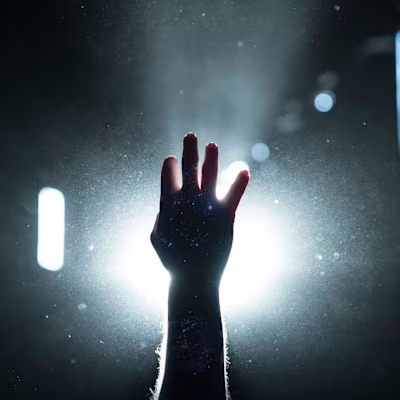Narratives and outness: Why six years beyond my faith and the c…

Narratives are tempting little things. They seem so linear, so certain of themselves, so invested in pulling a story from one point to the other, of progress and arcs. They don’t mind deviations, but only in service of the final thing, the climax. After that there is a denouement, a wrapping up, a tying of loose ends in beautiful bows that satisfy the page and the heart-breath of the reader.
For the last six years, I’ve invested my psyche in two narratives. Each is an arc that meant to oppose something that came before. I wanted and ached for these stories to cohere and pierce through time to bring me to narrative fulfilment. But narratives work on the page, not always in life — and good writers can contort narratives to do different things anyway.
These are the stories I wanted to tell:
First, that being ‘out of the closet’ would lead to dating, sexual experimentation, a few long-term relationships and ultimately marriage or something approximating it. That being out was for dating.
Second, that being post-Mormon — having left the Church of Jesus Christ of Latter-day Saints formally and emotively — would lead to spiritual experimentation, settling into a new faith path and freedom from the traumas and knots my 15-year membership wrought.
I’ve wanted these to be true so badly. I was wooed into it. My Mormon training told me, promised me, that actions have consequences: I could trigger the necessary universal laws by some action, and the results would be exact and proportional. Progress was as certain as gravity. That training has failed me.
This essay is a meditation on a kind of loss — not a loss of faith or innocence, though those things were lost too, but a loss of a need for things to turn out a certain way six years into a life that is utterly different from what I was before.
2019 was a year of rupture and narrative formation
In January of 2019, I come out as gay. It was a long, knobbly path that was made excruciating because I was a faithful and very much believing Mormon. Coming out wasn’t just a public declaration or even striking a political trajectory; it was a statement that I rejected at least some church teachings and that I was disengaging from full activity. (I wrote at length about that decision.)
By the end of 2019, my disengaged stance wasn’t working. My Mormon faith had dissolved. I’d experimented with some other belief systems, but they didn’t stick and I found myself happily atheist. Continuing to attend church was wounding me, so I decided to leave. (I wrote about that process too.)
Those two decisions — coming out of the closet and out of a faith system — were moments in time that ruptured the trajectory I’d been living on and required me to find new narratives to make sense of the explosions and evolutions, and what the fuck I was supposed to do now.
First, though, I need to look back to the original storyline.
The old Mormon narrative of my life
My life before 2019 was planned and linear. Mormonism fashioned it that way. It was a path that had clear spiritual milestones: baptism, confirmation, ordination to Aaronic Priesthood offices, ordination to the Melchizedek Priesthood, the temple endowment, serving a two-year proselytizing mission, a succession of ecclesiastical callings. This was progress. And progress was good. It was divine. If I wasn’t progressing, I was in sin and needed to repent to get back on track. The universe demanded momentum.
My sexuality was a spanner in the machinery, a constant blotting on the narrative line my church gave me. The way Mormonism taught me to deal with my gayness was to see it as a mortal trial, given by an all-knowing God who had some reason for it, that meant that my personal spiritual path would not and could not include the highest and holiest of Mormon milestones — the temple marriage. That was denied me, unless I chose to marry a woman I wasn’t attracted to, but this was (mercifully) discouraged. So, my life path was bachelorhood. I believed in it. I wanted to date and fuck and marry and experience romance and lust and connectiveness, but I was forbidden those things, so they didn’t appear in my narrative. I told myself that that was okay. I’d establish a career that could give me meaning (teaching — another trajectory I later abandoned) and the Lord’s plan would take care of me. I just had to hide and pretend to be normal. Performance would assure my place in heaven — performance and extreme obedience.
But that story was unstable. At some point, I had to reckon with the embodied reality of my sexuality and its conflict with my faith. I had to confront the desires I had to connect with men in ways I was told I couldn’t. Desire didn’t feel wrong. It felt good and normal and holy and human. This internal knowing collided with the narrative.
Trying a Path of Paradox
So, what happened in 2019 was a two-step process. First, I came out, because the stress of hiding was constant and chafing and draining. Disclosure was needed or the truth would tumble out anyway. I needed to control the revelation. I published an essay expressing my sexuality to the world. My trajectory shifted at once. The Mormon path vanished. Every plan for progression in church callings and increased faithfulness was obliterated by the fact of what I wrote and the insouciance of my tone. I told the world that I was ‘disengaging’. I was trying to mould a path that would let me to attend church, be Mormon and associate with that community, but while being an out gay man who wanted to pursue dating. I wanted a Path of Paradox … and I said so.
Yikes.
I had proposed a path that was categorically not sanctioned. Mormonism isn’t a faith of diverse approaches to spirituality. It poses one path, the Path, the Plan of Salvation, as the only way to happiness. All other paths are sinful, inherently unhappy and ultimately tragic. You’re allowed to mess up, but the response is repentance and realignment with the Path. Obedience is the higher law.
Some gay Mormons do manage to be open about their sexuality and maintain their activity — but they don’t pursue dating or sex. That’s the deal. The church in 2025 doesn’t like people to be out, but if they’re going to be, they need to be openly celibate.
But I wanted something else. I still felt like I believed in most of Mormonism. I just felt that they were wrong about homosexuality (among other things). I still loved my community. I loved the music of the church, which is the thing that really kept me in and spoke to me and resonated with my soul. I craved sublime spirit of sacred space and ritual time. I wanted all of that, but also the freedom to date men when I wanted, to have sex with them if I chose and, ultimately, to get married.
For months, I tried to make the Path of Paradox work. I arranged to be the organist for two congregations so that the sum of my Sunday church experience would be on that organ bench, creating sacred music for my community and feeling that sense of sublimity that music always gave me — but nothing more. I didn’t attend Sunday School or other church meetings. I didn’t take the sacrament, pay tithing or participate further. I just wanted to be there, be in community and play my musical role. It felt like the right place for me and the right arrangement of boundaries and possibilities for me to thrive.
The Path was untenable. The tension was clear from the start. Fuck, it’s clear in that first essay when I tried to express the muddle I was going to make into a sacred space. The system wasn’t going to tolerate it. No one told me to leave, but I was told to stop writing so transgressively, to stop rocking the boat, to be careful with what I said and what I advocated for. Many people stopped talking to me at church. Some moved out of my way so they didn’t run into me. Whispers in neighbouring wards and stakes about me made me into a spectacle, an object of pity, a perversion and a contestation. I was being pushed to the edges.
There were those who gave me support. Often it came on chapel sidelines, in one-on-one conversations, with hedging like ‘if I were you, I’d leave’ or ‘I agree with you, but I don’t know what to do with the doctrine’. I found myself hearing confessions of other Mormons who were also trying to construct divergent paths on the margins, always in secret, always with the performance of mainstream Mormonism to shield them from ridicule and exclusion.
The Path of Paradox wasn’t the only problem, not in and of itself. Beneath the surface of church attendance, rituals, essays and out language, my faith was genuinely shifting. (Read more about that process here and here.) Being out triggered a cascade of reevaluations of the presumptions of my faith world, and the result was collapse.
It took — quite literally — a few months for the system that had formed my worldview and moral centre and spiritual impulses to crumble into a kind of wondering, a seeking for meaning beyond truths and certainties, and a satisfaction with the world as it is, presented to me on its terms, with the locus of control over my actions firmly within me, not a church official or a dogmatic centre. I stopped believing. No … I outgrew belief.
And that meant that I needed yet another narrative. This time, it was an escape trajectory — a path beyond Mormon orbit. It took some time to gather the bravery to do it, but I did. The last Sunday in 2019 was my last in the church.
I abandoned the Path of Paradox in favour of escape and outgrowth.
I was out of the closet and out of Mormonism, but a new narrative claimed my focus and hopes
The stories I had abandoned by this point were happy throw offs. They’d held me back. They’d served to diminish me, tell me I was depraved and deny me the joys and rights that were always inherently mine. In the first year or so after I left the Mormon Church, I settled into my new life, embraced the thrills of liberation and choice and agency, of my sexuality finally, giddily, joyously having its end and purpose sought and affirmed.
I had spent more than 15 years convinced of my inadequacy and sexual perversion and the fundamental shutting off of any desires for sexual or romantic fulfilment. Suddenly, I was allowed to want those things. And more than that: I could have them. I could start dating — without shame or guilt. I could desire other men and not hate the desiring. I could allow myself to desire and then, without hellfire simmering below me, I could also be desired in that fantastical tandem that everyone else seemed to get even when they were young, the heady chemistry of craving and connection reciprocated and rebounding in a thing called a relationship. I could actually do that.
I could have sex. All the bounds and guardrails and rules and prohibitions and prophecies of doom could go, and in their place I could actually give into the part of myself that had craved and thirsted in secret, hating the feeling and escaping the wanting and being terrified that I’d fall into temptation that would lead to breaking the Law of Chastity and church discipline and all the attendant horrors. Suddenly, almost hilariously, there was a potential for getting what I never thought I was permitted to have.
I nursed and nurtured that potential. It was so transgressive but also so good. And normal. And human.
But there was a new problem. The potentiality of that liminal space I was in imposed itself on me and rapidly become a new story with a new path, complete with steps. It was the Story that Starts with Coming Out.
The Story that Starts with Coming Out didn’t emerge from the ether; it was informed by what I read in queer literature and saw in queer film and witnessed in the queer people around me. It was a narrative with this sequence of plot points: the closet was a before-time. Coming out was the beginning of a new life. Being out allowed but also necessitated dating or sex. Either could be the beginning and would lead to the other. Gay dating would lead to some long-term gay relationships, most of which would eventually end, and after messy breakups, dating would resume. And eventually there would be the culmination: marriage. But it didn’t have to be marriage, though legally I could have it. It could be some monogamous commitment or even a polyamorous one, but some Serious Relationship was the goal.
Now, I acknowledge that the queer community embraces and explores alternatives to the Story that Starts with Coming Out. This needs to be stressed. But while I was aware of them, the potentiality of my just-out life coopted a homonormative path. I was out, so now I could and should date. If I didn’t, what was the point of being out? What was the point of leaving the church? Both those things were costly. I lost friends, community, social standing, certainty in faith and worldview. I gained things too, yes, but the cost was high. If was going to continue living a celibate life, what was different from my old life and my old narrative?
The pressure hit quickly and I was overwhelmed by it. At first, I knew that heading into dating would be too much too soon. So I waited a bit. I experimented with dating apps. That was … a lot to navigate. Seeing how gay men portrayed themselves and marketed themselves on dating apps was intimidating and suffocating. I found a world of gym pictures and obsession with muscle and hidden identifies and declarations like ‘masc4masc’ that screamed my inadequacy and insufficiency and inexperience at me. I could tell a lot of it was performative and that many men were using aggressive and flippant language to mask their own insecurities, but the linguistic and visual cues were too vibrant and insistent. They were caricatures of truth. This was a world that I wasn’t ready for and frankly that didn’t even seem that enticing. I wanted to meet men and form some kind of bond with them, but I didn’t want the world of hookups and confrontational pickiness and fleshy promotion.
I abandoned the apps quickly and settled into living a life without active dating. I was definitely out in that I was open. Even in my workplace — teaching high school English — I didn’t hide my identity. This did lead to some profoundly important moments in the classroom and outside of it with my students. I found they were mostly very accepting of who I was and many of them told me (in the years since) that my openness made my classroom feel safe to them, that I seemed more approachable because I was real with myself and unashamed in my own skin. This was so good for me.
The acceptance was therapeutic, especially when it came from the straight boys: of all students, I thought they would be the ones to be awkward around me and suspicious of me. But the opposite was true.
Being out was giving me legitimacy in communities outside of the Mormon Church and I was very comfortable with the political consequences of it (because coming out still is a political act). These were components of my identity that I was embracing, but relationality — dating and sex — was a different step.
I didn’t do those things and I felt that the Story that Starts with Coming Out was stalling.
Trying to jury-rig the story to work
And the stalling continued. About two years after leaving the church (three years after coming out), I felt like a failure as a gay man. I was so dejected that I threw myself back onto dating apps. This time, I diligently swiped right, started conversations, pulled off some tragically bad textual flirting, and even got asked out on a date, my first ever date with a man.
It didn’t go well. It wasn’t bad, but the guy’s profile photos were so inaccurate that I just wasn’t attracted to him in person, and the dishonesty stung. He was hung up on an ex that he couldn’t stop talking about and when I let slip that I was inexperienced in dating, his response bordered on disgust and hostility.
Rather than viewing that date as the first step on a learning curve and evidence that not every catch on an app is a good one, and that I had to learn the skills of dating, the encounter felt like a reinforcing of my unreadiness.
I deleted the apps, told myself I’d waited too long to come out, too long to start dating and that I was now just too old and too green. And that growing up a closeted Mormon had made me so averse to leaning into sexual and romantic potential. The dating scene was too scary, too loaded, too mired in unseen scripts and expectations, and I thought too established for a newly out virgin in his thirties.
The haunting Mormon prophecy to the benighted apostate
Instead, I threw myself into work. Teaching is a profession that devours those who devote themselves too headily to it. That’s exactly what happened to me. Work absorbed my time and attention. It didn’t take long before it wanted more of me, coaxed me towards management paths I didn’t want, gave managers ideas about exactly how my talents should be used without compensation and soon I was in toxic spirals. (Naturally, I’ve written about that too.)
Allowing work to distract me from the typical out-and-fucking story I was supposed to be living meant that I was always running away from the Story that Starts with Coming Out, chasing a goal I couldn’t see and terrified I was failing at expectations I wasn’t really sure I understood. Yet I was also running from something else, something much darker and much older in my psyche. It was another narrative, this one given to me in Mormonism as a warning.
The Mormon imaginary constructs many threats to keep adherents in line, but its most potent is the Sad Tale of the Apostate. It’s encoded in Mormon scripture, whispered with shaking heads and panicked heartbeats in classes and study groups, and invoked in sermons as hideous warnings, always uttered in certainty and fear.
The Sad Tale of the Apostate goes like this: If you turn from the Lord once you’ve received a testimony that the church is ‘true’ and made covenants to serve Him, you are doing so willingly. This is the highest sin. Alternatively, you might start doubting the church, which starts because you’re sinful, but Satan can lead you astray, in which case this isn’t the highest sin but it’s close. You probably are doing all of this so you can sin and enjoy lustful pleasures, but these will only lead to unhappiness, because all sin always leads to unhappiness, just as all righteousness always leads to joy and eternal life. You cannot have a better life outside of the church. It’s cosmically impossible. You will not be happy. But you will return. You will! You will return because you know the church true. And God will lead you back. And then you will repent and be happy again.
Figures in church history are held up as prototypical examples of the Sad Tale of the Apostate. Members who resign their membership are mourned over for being led astray to the buffetings of Satan, or for their selfishness and greed. Plans are made to bring some of them back. If they’re really dangerous like me because they’re vocal in their opposition, then they’re avoided because they could damage others’ faith.
The Sad Tale of the Apostate haunted me. I didn’t believe it literally. My faith had moved on so thoroughly from Mormonism that I wasn’t afraid there was a literal God who gave me a testimony and now I was denying Him. It was just a horrible feeling that the programming of the Sad Tale of the Apostate was still active in my veins, that I was manifesting it. Or, worse, my stubbornness and cowardice were having the awful effect of making the Sad Tale of the Apostate true by accident.
And what would Mormons then say? What if they found out I was still single and virgin? They’d say, look! God is calling you back! You haven’t found happiness! You might as well return. You were never going to find love anyway. What made you think you had any right to it? Why on earth or in heaven would you deserve to indulge the parts of you we always confirmed were evil?
Other people get sex, not you! Never you! How dare you fantasize! How dare you think yourself worthy, above God’s will, beyond His plan!
My fear of the Sad Tale of the Apostate compelled me to do something, but the guilt was too piquant, so I just absorbed myself more in work. And when work turned against me, demanding more sacrifice and blood, I had no resort. It was all spiralling.
Writing a novel and the healing embrace of friendship
One of the few good decisions I made during this arduous period was to apply for a master’s degree in creative writing. It was a desperate attempt to engage in something that felt creative and different to my job and the narratives swirling around and through me.
My dissertation for that degree is due this week and it includes a speculative fiction novel, Sentient Potential. Over the last two years, without knowing it, my soul has started to solve the narrative problems of my out-and-broken life. I shouldn’t be surprised: how many novelists don’t project their lives onto the page?
The novel follows a protagonist, Miguel Vidente, who has the magical ability called Sentience, which forces him to feel the emotional worlds of the people around him. He comes into contact with an old classmate, Taye Velox, who is Kinetic and many rungs above Miguel’s caste. Without spoiling the plot, I’ll reveal that Miguel is gay, Taye is straight, and they’re compelled into a relationship that isn’t sexual or romantic, but which throbs close to that definition. Miguel’s powers give him access to parts of Taye that even Taye can’t confront, and this intimacy, this intense, piercing, gloriously queer emotional intimacy, is the novel’s central concern and the characters must grapple with it. How they do and what happens is for you to read.
But I’ve realized recently that the novel was my heart’s way of sorting through the narratives of my life, the compulsions coming at me and the stories I’m desperate to tell. Because what I’ve done is create a literary work that explores and celebrates and queers the notion of queer platonic love, of relationships so far beyond traditional conceptions and bounds of the kinds of love men are supposed to have with each other. The text suggests (without my intending it) that the hierarchy of love that society poses — platonic friendship is less than romantic love which is less than making love which is less than marriage in which sex and love are joined — doesn’t need to be vertical. In fact, love can exist horizontally too: some relationships that we would call friendships because they lack romantic or sexual dimensions can be just as emotionally intimate, or even more so, than among people who are dating or ‘in love’. In fact, sex would just be a different way of relating, a sideways movement, not an upwards evolution. Loving happens in wondrous and diverse ways.
And this is where I’ve found myself. My out life hasn’t followed the homonormative script. Dating has been hard and love and sex have eluded me for now, but my life is full of fulfilling relationships. In fact, some of the dearest people to me are straight men. Their love is pure and safe and vulnerable, hidden beneath layers, but earned and joyous — and can be profoundly, emphatically intimate. I don’t need or want sex from other the dear women in my life. That would be a sideways move.
In so many ways, the six years I’ve spent out of the closet have put me in my new authentic identity in communion with people. My queerness inflects how I show up. I know it made me a better teacher, a more trusted mentor and a better friend, especially in male society. I haven’t failed as a gay man just because I haven’t (yet) found the arc of romantic and sexual fulfilment. I’ve succeeded by being a gay man in other ways of relating. And that’s fine for now, or forever. I think. Mostly, it is. And that’s okay.
I was trying to teach myself this very truth, but I was too blinded by the Sad Tale of the Apostate and the Story that Starts with Coming Out. My desperation to avoid the former and have the latter kept me from reckoning with the radicalness of my out life, from learning to be content and happy and filled with life as it is, with the people I keep close to me, from needing the Story that Starts with Coming Out to be my only end.
So, finally — or maybe beginningly? — I’ve reached a point at which I can discard the old narratives and plot something new. I’d like romance and sex to be part of that story, but I don’t need it to, at least not right now. There are days when I disagree with all of this and days when it shimmers with truth. This doesn’t make the Sad Tale of the Apostate true. If anything, the joy I’ve found in queer connectedness and pride refutes the Tale. Mormonism was horror and misery for me. It diminished me. I am happier outside of it and I’ve moved far, far from it.
I don’t know what futures my nascent story holds, but at least I’m finally, beginningly, okay with its twisting, queering, wondrous trajectories.
Thanks for reading Borderline Apostate: Essays on a Gay, Post-Mormon Story! Subscribe for free to receive new posts and support my work.
Like this project
Posted Mar 31, 2025
I left the Mormon Church and came out as gay, but new narratives emerged that I couldn’t meet. I needed a new story.
Likes
0
Views
7




